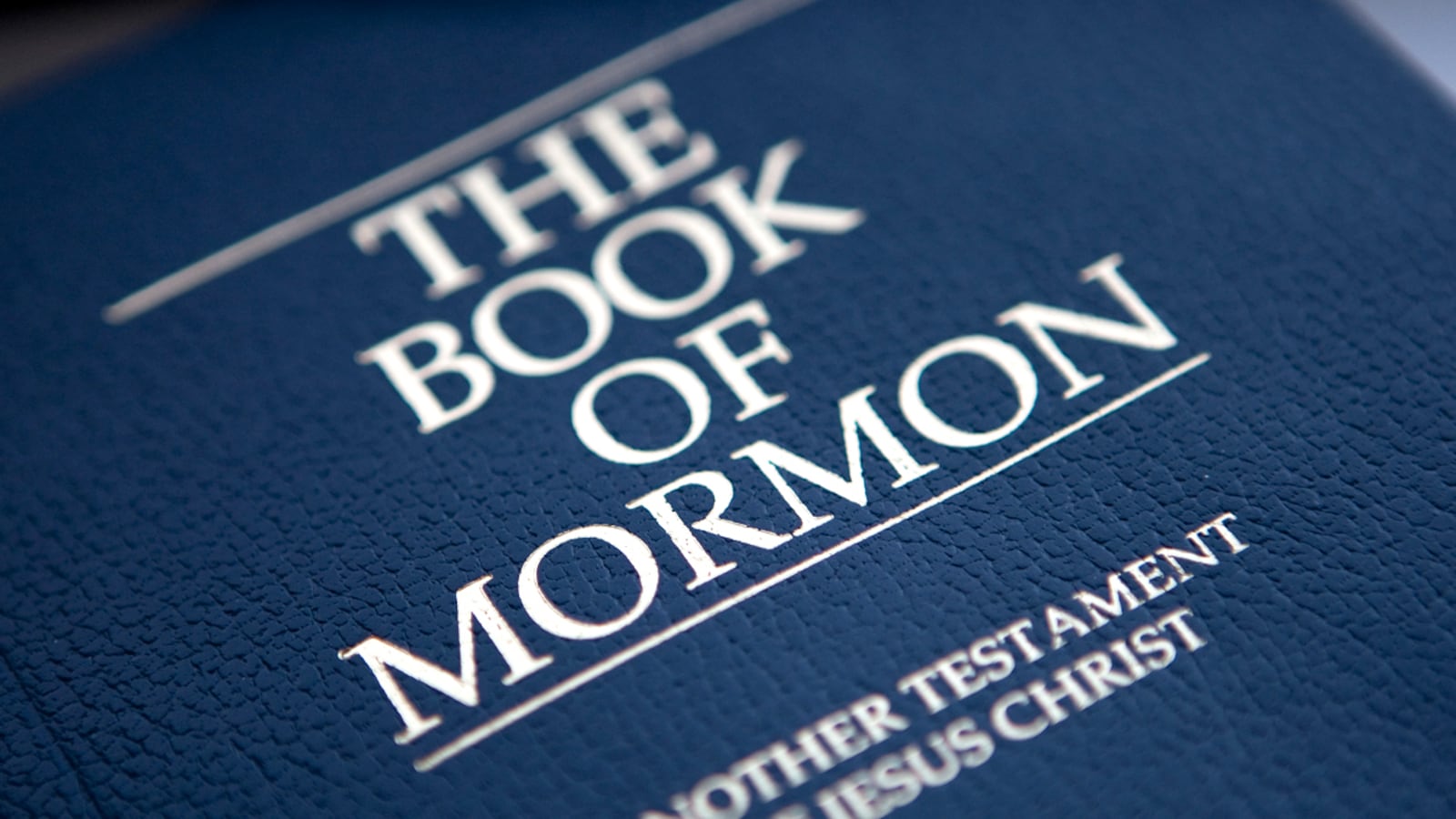They might not like him, but they could live with him.
That’s the message behind a new Pew Research Center survey of Republican voters that asked about Mitt Romney, his Mormon religion, and how it will affect their choice for president in 2012.
By an overwhelming margin, nearly all the Republicans surveyed, 87 percent, said they would support Romney over President Obama in a general election. Romney’s strongest showing in the head-to-head contest would be among group least likely to say they support him in the GOP primary—white evangelical Christians.
Although just 17 percent of white evangelicals in the Pew poll would pick Romney as their top choice in the GOP primary, a whopping 91 percent said they’d vote for the former Massachusetts governor over Obama next November, regardless of their questions about his Mormon faith.

Cary Funk, a senior Pew researcher, says that while Romney’s religion could be an issue for him in the GOP contest, Republican distrust of the president is greater than their concerns over Romney’s faith.
“We know that over time, one of the main questions has been about evangelical support for Mitt Romney. But you see that totally disappear when you get to the general election,” Funk says.
“Evangelicals are the same voters who view Obama very negatively. In the head-to-head, they are just as strong for Romney as they are any other Republican candidate.”
The hesitation among primary voters isn’t hard to decipher. Just over half say the Mormon religion is Christian, but 32 percent say it is not—and that figure hits 47 percent among white evangelical Protestants. Mormons regard themselves as Christians.
Among all voters surveyed, 24 percent associate Mormonism with such negative words as cult, polygamy, restrictive, strange, or misguided. Another 18 percent offer such words as good, dedicated, devout, faithful, and honest.
But even among the skeptics, Romney benefits from attitudes toward the incumbent. In a fall election, 58 percent of Republicans who do not believe Mormons are Christians have a very unfavorable view of Obama, compared with 44 percent of Republicans generally.
Adam Christing, producer of the newly released documentary A Mormon President, says the biggest challenge for Romney in the general election will just be getting there. Iowa and South Carolina, which host two of the earliest and most crucial GOP contests, are heavily evangelical. Herman Cain and Newt Gingrich are polling way ahead of Romney among those voters in the early states, as well as in Pew’s national survey of evangelical voters, where 26 percent said they support Cain, 19 percent said they’d vote for Gingrich, and 17 percent chose Romney. Cain also leads Romney among self-described Tea Party voters, 29 percent to 18 percent.
“It’s really not about Mitt—if he were a Baptist, I think he would be 10 points higher in the polls,” Christing says. “I think evangelicals are deciding whether they’re going to vote with their wallets or their worship. In the primary, they seem to think they could do both.”
Although some GOP voters are strongly influenced by the candidates’ religion in the primary contests, Pew also found that awareness of their religious beliefs is hit or miss among voters at large. Despite all the media attention, less than half of all voters know that Romney is Mormon, while 60 percent of evangelicals are aware of his religion. Just 18 percent of evangelicals know that Texas Gov. Rick Perry is an evangelical, and 30 percent say they know that Herman Cain is Protestant.
If Romney made it to the White House, he would be the first Mormon elected president, but he wouldn’t be the religion’s first high-profile politician in Washington, where Senate Majority Leader Harry Reid, a Mormon, works alongside five Mormon senators and nine Mormon House members.
Romney is far from the being first Mormon to mount a presidential bid. The religion’s founder, Joseph Smith, ran for the White House in 1844. Sen. Orrin Hatch ran in 2000, while Romney’s dad, George Romney, ran for president in 1968. Mitt Romney isn’t even the only Mormon running for president this year. Jon Huntsman, the former Utah governor and current Romney nemesis, is also in the church, but his low numbers in the polls seem to be diminishing interest in the finer points of his religion as well.
So why all the fuss about Romney’s religion, when other Mormon politicians seem to fly under the radar?
Christing says he thinks it’s because conservatives are looking for more than just a figurehead to run the government.
“Some people feel like being the president is a pastoral role, that he’s almost our shepherd,” he says of religious voters. “They seem to worry that he would not have God’s phone number during the Cuban missile crisis or some other time when many of us pray. They think he’s a good man, but he won’t have the right connections.”
But, he adds, “Evangelicals have to remember that they’re not voting for a pastor, they’re voting for a president.”






